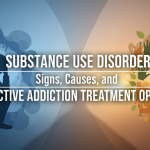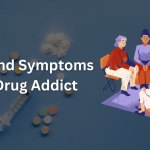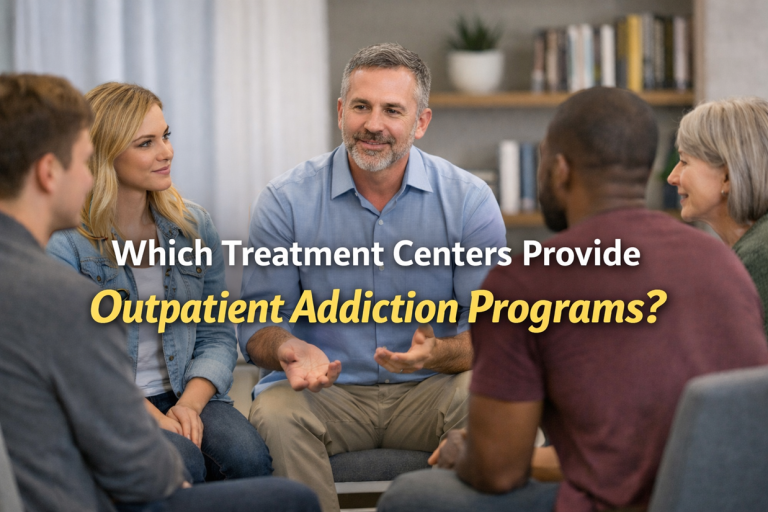About half of the states in the US allow the legal sale and use of marijuana and THC products. People may use cannabis products for medicinal or recreational purposes. Many people consider these products a safer alternative to other substances with a higher risk of addiction, including alcohol, stimulants, or opioids.
However, marijuana abuse can lead to symptoms of addiction. People who become addicted to weed may require intensive treatment and support to overcome it and maintain sobriety.
This article will explore how long it takes the body to clear weed from its systems. You will learn:
- How cannabis abuse and addiction occur
- How long weed remains in your system once you stop using it
- What happens during weed withdrawal
- How long weed may show up on a drug test
- Where to find detox, treatment, and recovery support
If you or someone you love needs help to quit weed, you are not alone. Solutions Healthcare offers treatment and recovery support programs to help you quit using weed or other addictive substances. Contact our specialists to explore your treatment programs or to schedule an intake appointment.
Understanding Weed Abuse and Addiction
Many people do not think of marijuana as an addictive substance. However, research has found that heavy cannabis abuse can lead to symptoms of addiction.
Marijuana contains tetrahydrocannabinol (THC). This psychoactive compound is responsible for marijuana’s side effects. Short-term effects of cannabis include:
- Euphoria
- Relaxation
- Increased appetite
- Impaired judgment
People may also experience unwanted effects of using THC products or cannabis, including:
- Anxiety
- Confusion
- Memory issues
- Nausea and vomiting
- Paranoia
- Panic attacks
- Irregular heartbeat
- Hallucinations
The Diagnostic and Statistical Manual of Mental Disorders (DSM) defines cannabis use disorder as a recognizable condition. According to the DSM, symptoms of cannabis use disorder include:
- Tolerance to cannabis, meaning that someone needs to use a larger amount of the substance to get the desired effects
- Experiencing withdrawal symptoms if they stop using weed
- A loss of control over cannabis use, even when it causes significant harm
- Neglecting responsibilities, relationships, or hobbies because of cannabis use
People who develop symptoms of cannabis addiction may require intensive treatment to stop using it and avoid relapse. Contact Solutions Healthcare to learn about our treatment options or to schedule an intake appointment.
How Long Does Weed Stay in Your System?
Many factors can affect how long cannabis stays in your system. Here is an overview of some of these factors.
Body composition
THC (the psychoactive compound in weed) stays in the body’s fatty tissues. The more fat people have, the longer the body can store THC. Metabolism can also affect THC storage. People with a quick metabolism may process THC faster than those with a slower metabolism.
Frequency of use
Frequent or heavy cannabis use can lead to longer retention of THC within the body.
Dosage
The dosage and potency of THC someone uses can impact how long marijuana stays in the body. It can also affect how long a drug screening may detect THC.
Method of use
People may eat or smoke cannabis and THC products. Eating THC may lead to long-term detection in different types of tests.
There is no proven way to eliminate THC and its metabolites. Drinking plenty of water, eating well-balanced meals, and exercising are great ways to improve overall health. However, they will not have a significant impact on how long THC shows up on a drug test.
100% Confidential Support is Available 24/7
No matter what you’re going through, you’re not alone. Our dedicated team is here to provide a safe, judgment-free space where you can talk openly and honestly. Whether you need emotional support, resources, or just someone to listen.
We’re here for you—completely confidential and always respectful of your privacy. Call us today!
How Long Does Weed Show Up on a Drug Test?
The amount and frequency of cannabis use can impact the detection window of drug tests. Certain substances can also lead to false positives. However, here is a guide on typical detection windows for several types of drug tests.
Urine tests
Urine testing is the most common form of drug testing. It is inexpensive and non-invasive. A urine test may detect weed for up to 30 days after your last use.
Frequent or heavy use can increase the amount of time a test can detect THC and its metabolites. A single use of THC may have a shorter detection window than someone who uses cannabis multiple times a day for a prolonged period.
Blood tests
Blood tests may detect THC for up to 30 days for chronic or heavy users.
Saliva tests
Saliva testing may detect weed for up to 72 hours after your final use.
Hair tests
Hair follicle testing typically has the longest detection window. This form of testing may detect THC for up to 90 days after your last use. However, this type of testing is uncommon.
If you are concerned about failing a drug test, it may be a sign that you need substance abuse treatment. Contact the Solutions Healthcare team to learn about our detox, treatment, and recovery support programs.
Contact Solutions Healthcare
Battling with Drug and Alcohol Addition? Remember, you are not alone and we are here to help you!
Find Treatment Now
Treatment for weed addiction typically starts with a detox program, followed by comprehensive treatment. This treatment can help you explore and address the roots of substance abuse or addiction.
Contact the Solutions Healthcare treatment team to explore your cannabis abuse treatment options or to schedule an intake appointment.
References
- National Institute on Drug Abuse (NIDA): Cannabis (Marijuana)
- Centers for Disease Control and Prevention (CDC): Urine Testing for Detection of Marijuana: An Advisory
- National Institute of Health (NIH): Chemistry, Metabolism, and Toxicology of Cannabis: Clinical Implications
- Science Direct: Prolonged detection of cannabis in urine of a consumer in a Forensic hospital, Victoria, Australia, up to 102 days of abstinence – A case report






















